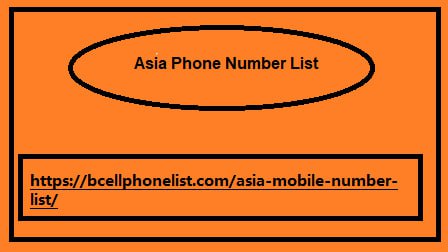Post by account_disabled on Feb 24, 2024 5:18:50 GMT
Russian propaganda spread on the Internet, many sites supported Ukraine and imposed sanctions on users from Russia: they removed "suspicious" content, left the aggressor's market, or were blocked by Russia. The list of restrictions for Russia is being updated, and so far we have prepared a selection of social networks that have already reacted to the war in Ukraine and supported us. Content: Twitter YouTube Facebook Instagram LinkedIn Telegram TikTok Reddit Ask.fm Bumble Inc. Snapchat Strava Upwork Conclusions Social media Twitter Since the beginning of the war in Ukraine, Twitter has blocked about 75 thousand profiles and marked about 50 thousand publications as unreliable.
"We also noticed a significant increase in the volume of content that was distributed in a misleading or inaccurate context, in particular, old Asia Phone Number List videos of conflicts that were passed off as taking place in Ukraine. We have flagged or removed over 50,000 samples of content under our policy on artificially created and specially processed media" — Sinead McSweeney, Twitter's vice president of public policy On February 26, the Twitter social network blocked the possibility of registering new profiles in Russia, and two days later began to flag Russian state media. To users of both Russia and Ukraine, the social network suspended advertising and recommendations of posts from authors to which the user is not subscribed.

At the same time, Roskomnadzor blocked Twitter in Russia for "discrimination against Russian mass media" on March 4. Twitter YouTube YouTube blocked hundreds of Russian channels, Russian state media channels and canceled video monetization in Russia (Google, the owner of YouTube, stopped viewing ads in the Russian Federation). Now the propaganda of Russian state media on YouTube does not work, and Russian bloggers will not receive money for viewing their videos. Earlier, Roskomnadzor appealed to YouTube with a demand to stop the spread of "fake information" about Russia's war against Ukraine. Blocking YouTube in Russia is currently under discussion.
"We also noticed a significant increase in the volume of content that was distributed in a misleading or inaccurate context, in particular, old Asia Phone Number List videos of conflicts that were passed off as taking place in Ukraine. We have flagged or removed over 50,000 samples of content under our policy on artificially created and specially processed media" — Sinead McSweeney, Twitter's vice president of public policy On February 26, the Twitter social network blocked the possibility of registering new profiles in Russia, and two days later began to flag Russian state media. To users of both Russia and Ukraine, the social network suspended advertising and recommendations of posts from authors to which the user is not subscribed.

At the same time, Roskomnadzor blocked Twitter in Russia for "discrimination against Russian mass media" on March 4. Twitter YouTube YouTube blocked hundreds of Russian channels, Russian state media channels and canceled video monetization in Russia (Google, the owner of YouTube, stopped viewing ads in the Russian Federation). Now the propaganda of Russian state media on YouTube does not work, and Russian bloggers will not receive money for viewing their videos. Earlier, Roskomnadzor appealed to YouTube with a demand to stop the spread of "fake information" about Russia's war against Ukraine. Blocking YouTube in Russia is currently under discussion.
